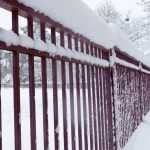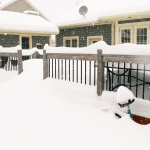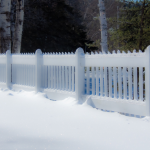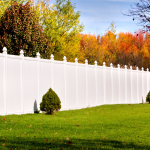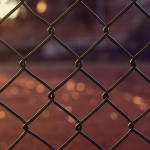Fence installation, be it for residential or commercial properties, represents a significant investment in enhancing security, privacy, and the aesthetic appeal of your space. To safeguard this investment, regular maintenance is key. From the sturdy chain link to the elegant vinyl and durable aluminum fences, each material demands specific care to resist the elements and wear over time. Serving Clarksville and surrounding areas, Clarksville Fencing shares invaluable tips to maintain your fence, ensuring it remains in prime condition for years to come.
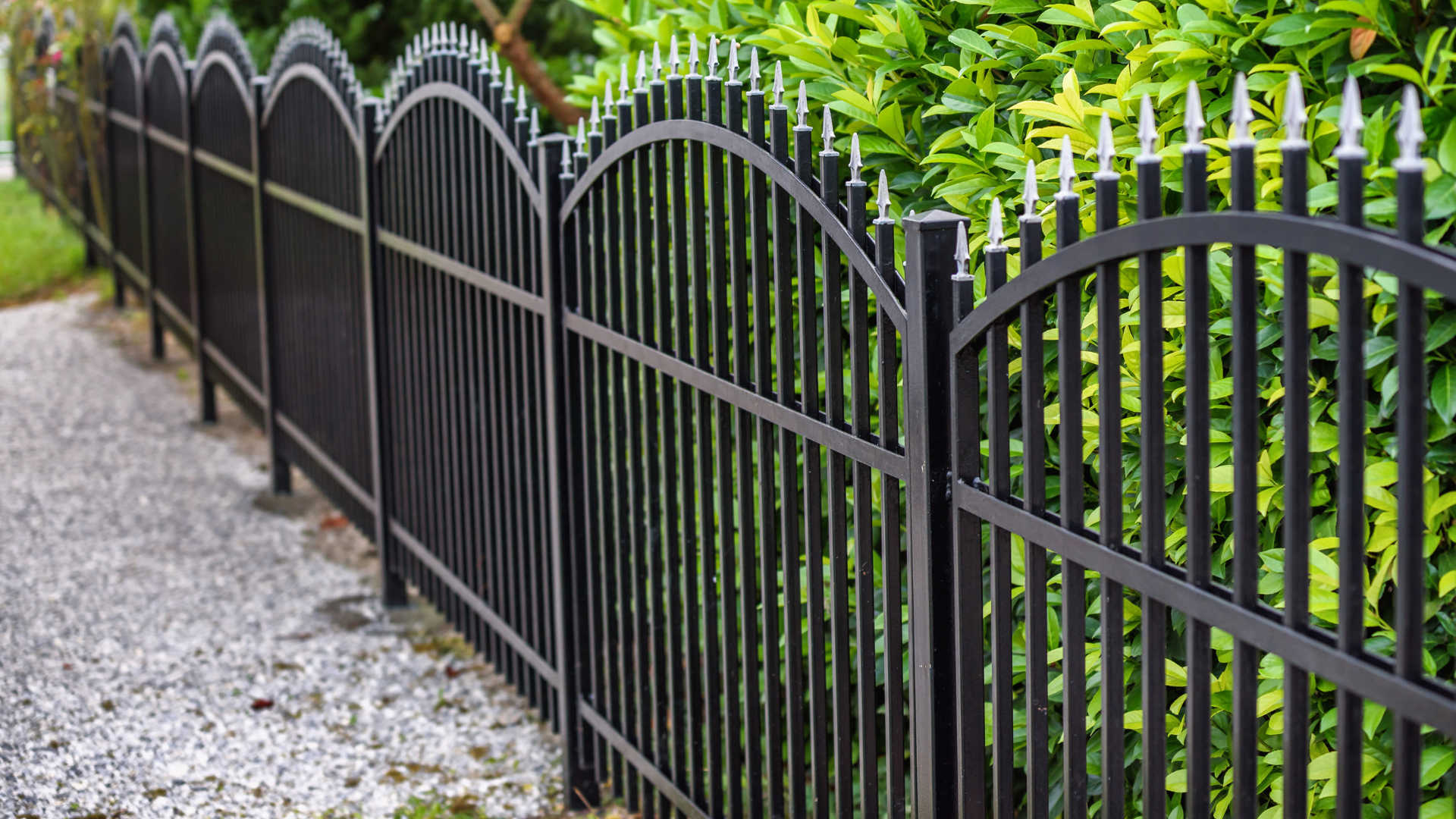
Understanding Your Fence’s Needs
Selecting the right fence for your property involves more than just aesthetics; it requires a thoughtful consideration of your specific needs and the unique characteristics of the fence materials available. Here’s a closer look at what to consider for each fencing type:
Material-Specific Maintenance
• Chain Link Fence: Ideal for those seeking durability and security without the high cost. It’s important to inspect these fences regularly for rust or damage, especially in climates with high humidity or salt air exposure. Galvanized and coated chain link options offer additional resistance to rusting.
• Vinyl Fence: Offers excellent durability and virtually maintenance-free longevity. Unlike other fencing materials, vinyl won’t fade, rot, or succumb to pest damage. However, it can be susceptible to staining and may require occasional washing with a hose or mild detergent to keep it looking new.
• Aluminum Fence: Known for its elegance and minimal maintenance, aluminum fencing is resistant to corrosion, making it an ideal choice for properties in almost any climate. Periodic inspections to check for scratches or dents that could breach the protective coating are recommended.
The Impact of Climate
The local climate in Clarksville can significantly influence your fencing material choice. High humidity levels can accelerate rust formation on metal fences, while intense sunlight can fade or weaken vinyl fencing over time. Selecting a material that is well-suited to withstand local weather conditions is crucial for ensuring the longevity of your fence.
Routine Cleaning Tips
Maintaining the appearance and integrity of your fence through regular cleaning not only keeps it looking great but also extends its lifespan by preventing damage from buildup and early wear.
For Vinyl Fences
Vinyl fences are favored for their low maintenance, but they do require routine cleaning to prevent dirt buildup and staining. A simple solution of soap and water is often enough for general cleaning. For tougher stains, a mixture of 30% white vinegar and 70% water can be effective. Use a soft cloth or sponge to apply the cleaning solution, and for textured surfaces, a soft-bristle brush can help get into crevices without damaging the fence. Rinse thoroughly with a hose after cleaning.
For Aluminum Fences
Aluminum fences are resilient but can accumulate dirt and debris. Regular washing with a hose can keep most of the dirt at bay. For spots or stains, a mild detergent solution can be used. It’s essential to avoid abrasive cleaners that can scratch the protective coating of the aluminum. After cleaning, a thorough rinse with clean water will restore its original luster.
For Chain Link Fences
Chain link fences can trap debris and require a bit more effort to clean. Using a pressure washer set to a moderate setting can quickly remove dirt from the mesh and posts. For rust spots or areas with peeling paint, a wire brush followed by rust-inhibiting spray paint can be applied to protect the metal. Ensuring the fence is completely dry before applying any paint is crucial for the best results.
Preventive Measures for Fence Longevity
Regular maintenance and preventive measures are key to prolonging the life of your fence, no matter the material. By taking proactive steps, you can ensure your fence remains strong and aesthetically pleasing, serving as a testament to your property’s security and beauty.
Regular Inspections
The first line of defense in maintaining your fence’s integrity is conducting regular inspections. This means walking the perimeter of your fence at least twice a year—preferably in the spring and fall—to check for any signs of damage or wear. For chain link fences, look for areas of rust or sections where the fence may have been bent or damaged by weather or impact. Vinyl fences should be inspected for cracks, discoloration, or brittleness, especially after seasons of extreme temperatures. Aluminum fences, while durable, should be checked for dents, scratches, or any signs of corrosion, despite their rust-resistant properties.
Immediate Repairs
Upon identifying any issues during your inspection, immediate action is necessary. Small problems can quickly escalate into major concerns if left unattended. For instance, a small rust spot on a chain link fence can be treated with a rust inhibitor and covered with paint designed for metal surfaces. However, if ignored, rust can spread, weakening the fence and leading to costly repairs or replacement.
Landscaping Considerations
Vegetation can significantly affect the health of your fence. Vines, shrubs, and trees growing too close to the fence can trap moisture against the material, contributing to rot in wood fences (not covered here but a general point of consideration) and rust in metal fences. Furthermore, overhanging branches can break and fall, causing damage. To mitigate these risks, ensure that all vegetation is trimmed back from the fence line. For chain link and aluminum fences, ensure that climbing plants are kept in check to prevent structural strain.
Enhancing Fence Durability
A well-maintained fence not only secures your property but also contributes to its overall aesthetic appeal. Enhancing the durability of your fence involves routine care and the use of protective treatments.
Sealants and Protective Coatings
Applying sealants and protective coatings is an excellent way to enhance the durability of your fence. For aluminum fences, a powder coating can add an extra layer of protection against the elements, maintaining the fence’s appearance and integrity for years. While vinyl fences require less in terms of protective coatings, cleaning and occasionally applying a UV protectant spray can help keep the vinyl from becoming brittle or discolored over time.
Addressing Rust and Corrosion
For aluminum and chain link fences, rust and corrosion can pose significant problems. At the first sign of rust, use a wire brush to remove it from a chain link fence, followed by the application of a rust-inhibiting primer and metal paint. For aluminum fences, removing debris and dirt regularly can prevent scratches that may lead to corrosion. If corrosion does occur, consult with a professional on the best course of action, as aluminum requires specific treatments to restore its protective layer.
The Role of Professional Installation in Fence Longevity
The longevity of a fence significantly depends on its professional installation. Expert installers from a reputable local company ensure the fence is correctly placed and uses quality materials, tailored to meet specific needs and withstand Clarksville’s climate. This meticulous approach minimizes common issues, safeguarding the investment and maintaining the fence’s condition over the years. Ready to install a fence for your residential or commercial property? Request a quote from Clarksville Fencing today!



